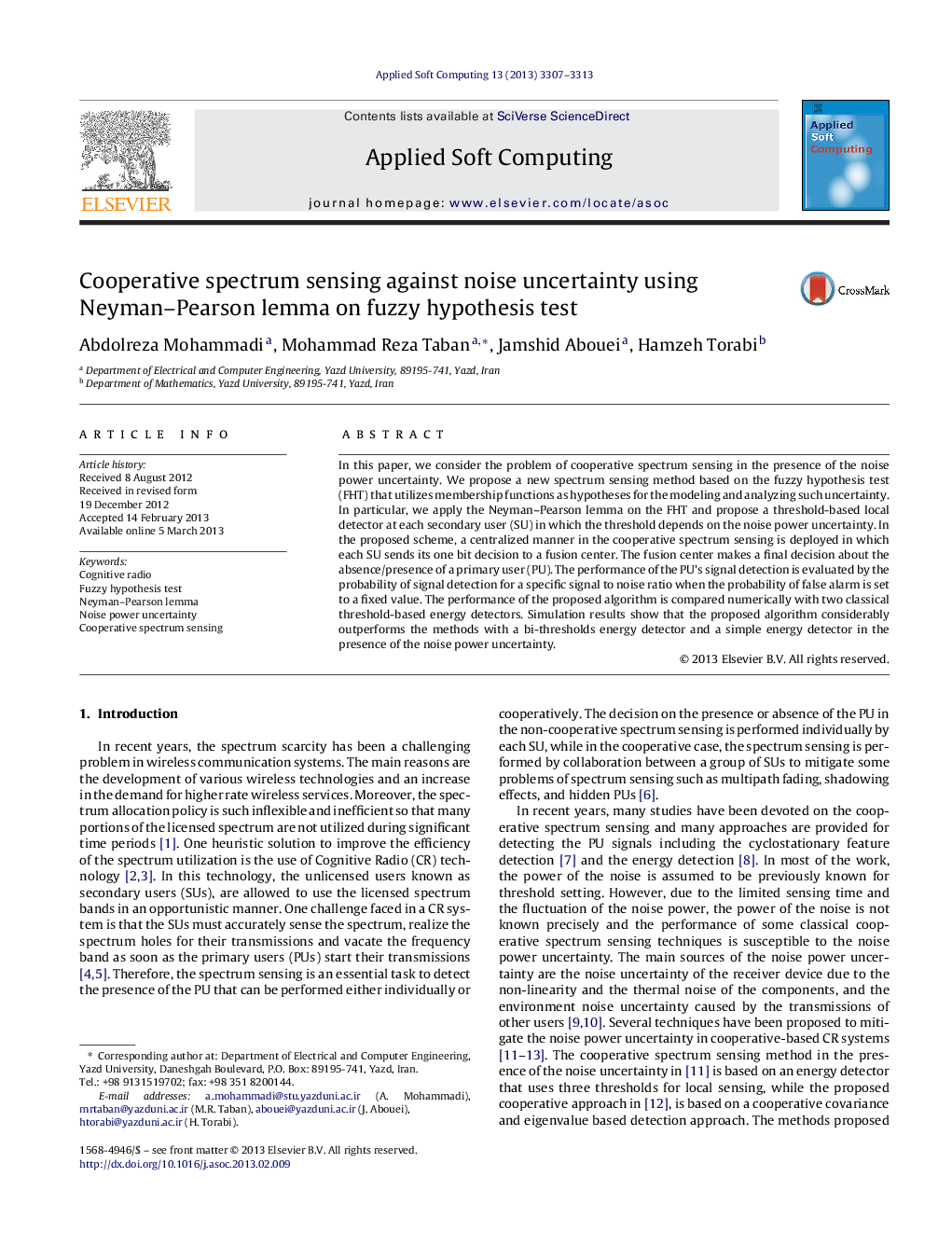| Article ID | Journal | Published Year | Pages | File Type |
|---|---|---|---|---|
| 495786 | Applied Soft Computing | 2013 | 7 Pages |
In this paper, we consider the problem of cooperative spectrum sensing in the presence of the noise power uncertainty. We propose a new spectrum sensing method based on the fuzzy hypothesis test (FHT) that utilizes membership functions as hypotheses for the modeling and analyzing such uncertainty. In particular, we apply the Neyman–Pearson lemma on the FHT and propose a threshold-based local detector at each secondary user (SU) in which the threshold depends on the noise power uncertainty. In the proposed scheme, a centralized manner in the cooperative spectrum sensing is deployed in which each SU sends its one bit decision to a fusion center. The fusion center makes a final decision about the absence/presence of a primary user (PU). The performance of the PU's signal detection is evaluated by the probability of signal detection for a specific signal to noise ratio when the probability of false alarm is set to a fixed value. The performance of the proposed algorithm is compared numerically with two classical threshold-based energy detectors. Simulation results show that the proposed algorithm considerably outperforms the methods with a bi-thresholds energy detector and a simple energy detector in the presence of the noise power uncertainty.
Graphical abstractFigure optionsDownload full-size imageDownload as PowerPoint slideHighlights► Using fuzzy hypothesis test for considering the noise uncertainty in spectrum sensing. ► Applying the Neyman–Pearson lemma on the model toward a new spectrum sensing detector. ► An expression between the local test threshold and desired false alarm probability. ► Cooperative spectrum sensing in fusion center by combining the binary local decisions. ► The proposed algorithm outperforms the simple and bi-thresholds energy detectors.
